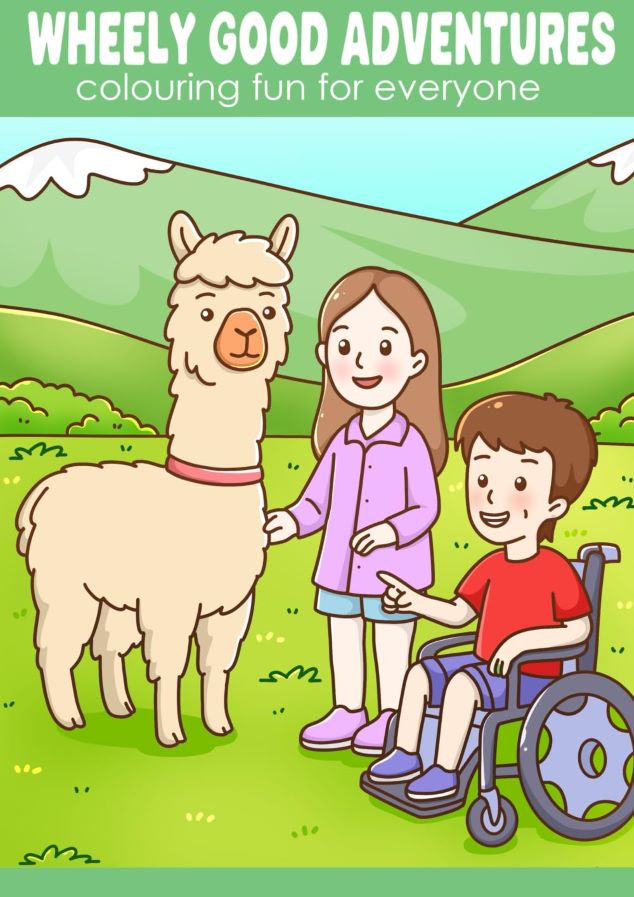Mental Health
Everyone faces some sort of mental health issues in their lives; however, the impacts vary for everyone.
“People with disabilities have more impact of mental illness on them…due to physical and mental barriers (different from normal people) such as accessing the community, going out with friends and trying to communicate them effectively with hand movements or speech….”
Gaurav has personally experienced difficulty with being able to speak and communicate with people effectively.
“I discussed this with my speech therapist, and I need to go slower when I’m speaking so they understand what I’m saying, and I can get my information out right to them.”
Gaurav also has some problems with auditory processing at school. Thankfully, he has had a good educational support team around him to help him manage the long days, by splitting them in half or reducing the number of classes he attends, to ease his mental capacities that often affect his concentration and easily tire him.
Grateful for NDIS Support
Navigating his way through the NDIS paperwork to access some more assistance to help him live his best life was an interesting process. It took Gaurav three attempts before he was successful, and he was quite surprised at how hard it was. Detailed documents were needed from at least three of his doctors and the Cerebral Palsy Support Network before any kind of supports were able to be activated.
“I wasn’t [considered to be] that disabled enough to get NDIS access. I needed the right documents from the doctors, from my therapist to help me get access to it.”
Barriers to seeking Mental Health Assistance
Accessing telephone hotlines for mental health issues have proved difficult for Gaurav, and he doesn’t find them beneficial, preferring to speak to his family and friends for support.
“Family are open and supportive to me with anything. They support me in any way that they can, talk to me during that phase… because they’ve known me since birth.”
However, while others may benefit from them, he believes the hotlines could create reoccurring emotional and communication problems for those who need consistent support.
“Each time you talk to them, they’re new…they’re not the same person, you need to explain to them over and over again what your problem is…You don’t know if they [the call taker has] experienced the same thing you have…They don’t have a disability, so it’s harder for them to understand what you are going through,” he says.
There is nothing to be ashamed of if you need to seek professional help with your Mental health, and Gaurav has been seeing a therapist.
Support Networks & Mental Health
Since year seven Gaurav has formed close friendships with several people with various disabilities and health issues. They all have the same likes and dislikes and always try to help each other out as they each navigate different things in their lives.
“I’m so happy if I’ve got this group of people that I can talk to if I need help.”
“Now I’ve become part of [the] Cerebral Palsy (CP) Achieve group and the Brains Trust program I can see people with Cerebral Palsy more now. Before I never met people with Cerebral Palsy, [before now] and now is a big change in my life.”
Staying Physically Healthy
Physical wellbeing is as important as mental wellbeing. Gaurav visits his local gym to keep fit and maintain social contacts. Getting the balance right is key and knowing when to take a breather from his studies.
“The best thing that helps me is getting out and going to the gym every single day…it’s helping me get out into the community and talking to people when I need it the most.”
Recognising when anger or frustration is dominating over your work or study, the best thing to do is to breathe, calm down and take time out to stop and do something that is pleasurable or relaxing. For Gaurav, this is watching comedy shows or playing games.
Advice for people with Mental Health issues
Gaurav’s number one piece of advice for those who think they might be struggling with mental health issues very practical and proactive:
“Don’t keep it in yourself, open up and talk to someone about it, parents, friends, or family.”
You can view the full CP Diaries episode here
Looking for Mental Health Support?
CPSN is not a crisis support or counselling service for people struggling with Mental Health. If you need professional support, please contact your doctor, local health centre or one of the services listed below:
CPSN


%20(4).avif)

